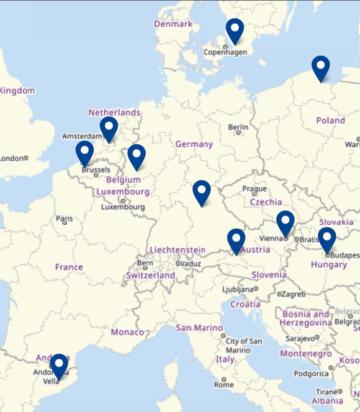Help us make the FRA website better for you!
Take part in a one-to-one session and help us improve the FRA website. It will take about 30 minutes of your time.

EU Charter of Fundamental Rights
Preámbulo
Los pueblos de Europa, al crear entre sí una unión cada vez más estrecha, han decidido compartir un porvenir pacífico basado en valores comunes. Consciente de su patrimonio espiritual y moral, la Unión está fundada sobre los valores indivisibles y universales de la dignidad humana, la libertad, la igualdad y la solidaridad, y se basa en los principios de la democracia y el Estado de Derecho. Al instituir la ciudadanía de la Unión y crear un espacio de libertad, seguridad y justicia, sitúa a la persona en el centro de su actuación.
La Unión contribuye a defender y fomentar estos valores comunes dentro del respeto de la diversidad de culturas y tradiciones de los pueblos de Europa, así como de la identidad nacional de los Estados miembros y de la organización de sus poderes públicos a escala nacional, regional y local; trata de fomentar un desarrollo equilibrado y sostenible y garantiza la libre circulación de personas, servicios, mercancías y capitales, así como la libertad de establecimiento.
Para ello es necesario, dándoles mayor proyección mediante una Carta, reforzar la protección de los derechos fundamentales a tenor de la evolución de la sociedad, del progreso social y de los avances científicos y tecnológicos.
La presente Carta reafirma, dentro del respeto de las competencias y misiones de la Unión, así como del principio de subsidiariedad, los derechos que emanan, en particular, de las tradiciones constitucionales y las obligaciones internacionales comunes a los Estados miembros, del Convenio Europeo para la Protección de los Derechos Humanos y de las Libertades Fundamentales, las Cartas Sociales adoptadas por la Unión y por el Consejo de Europa, así como de la jurisprudencia del Tribunal de Justicia de la Unión Europea y del Tribunal Europeo de Derechos Humanos. En este contexto, los órganos jurisdiccionales de la Unión y de los Estados miembros interpretarán la Carta atendiendo debidamente a las explicaciones elaboradas bajo la autoridad del Praesidium de la Convención que redactó la Carta y actualizadas bajo la responsabilidad del Praesidium de la Convención Europea.
El disfrute de tales derechos conlleva responsabilidades y deberes tanto respecto de los demás como de la comunidad humana y de las generaciones futuras.
En consecuencia, la Unión reconoce los derechos, libertades y principios enunciados a continuación.



